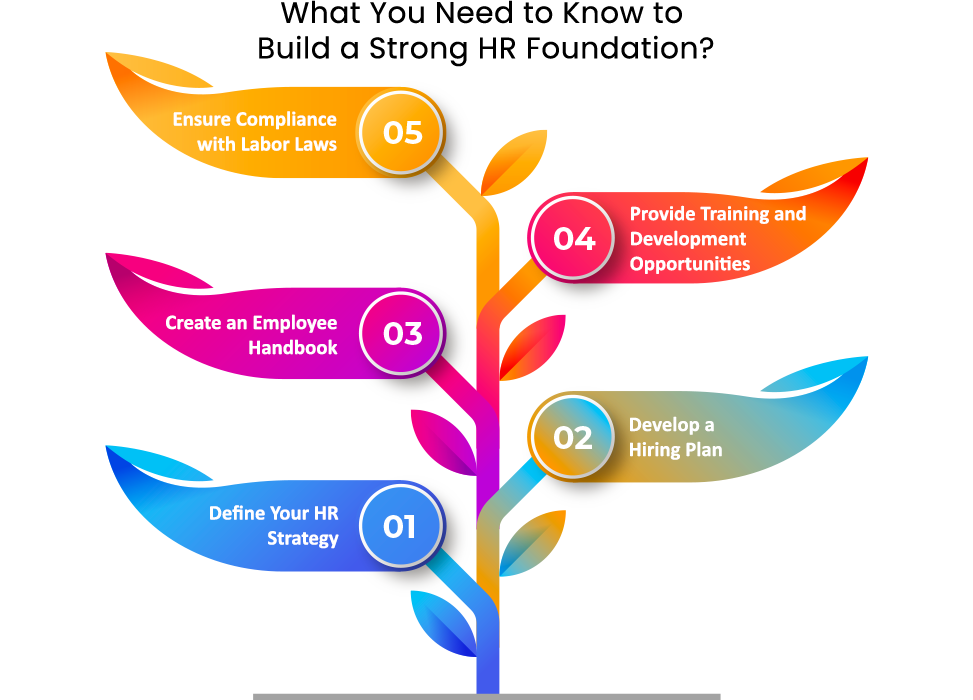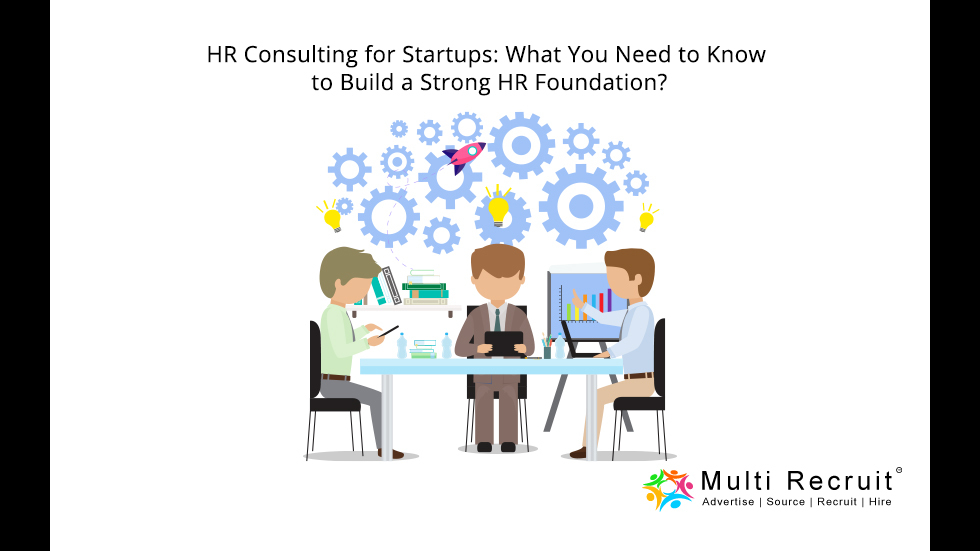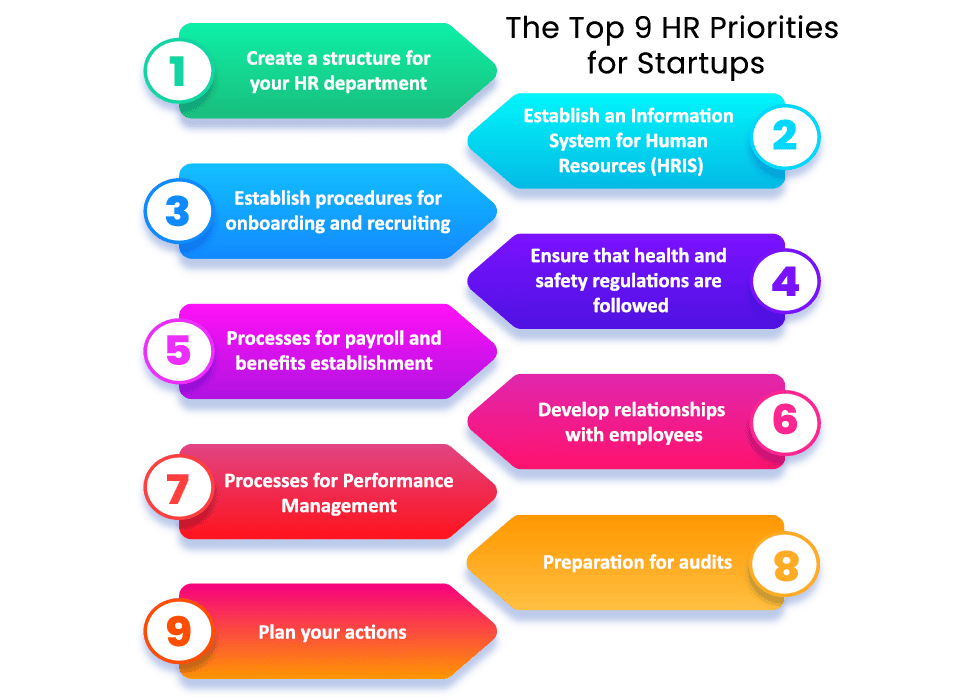Human resources (HR) are an integral part of any business, and startups are no exception. However, startups often face unique HR challenges due to their size and lack of experience. This is where HR consulting can be incredibly valuable. In this blog, we will discuss what HR consulting is, why it is important for startups, and what you need to know to build a strong HR foundation.
What is HR Consulting?
HR consulting is a service provided by professionals who specialize in HR management. They work with businesses of all sizes to provide customized HR solutions that are tailored to the specific needs of the organization. HR consultants can provide a range of services, including recruiting and hiring, compensation and benefits, employee training and development, compliance with labor laws, and more.
Why is HR Consulting Important for Startups?
Startups often have limited resources and lack the experience and expertise needed to manage their HR function effectively. By working with an HR consultant, startups can gain access to the knowledge and resources they need to build a strong HR foundation. This can help them attract and retain top talent, ensure compliance with labor laws, and create a positive and productive work environment.
What You Need to Know to Build a Strong HR Foundation?

Before you can start building your HR foundation, you need to define your HR strategy. This includes identifying your HR goals, determining your budget, and outlining your HR policies and procedures. Your HR strategy should be aligned with your business strategy and support your overall organizational goals.
2. Develop a Hiring Plan
Recruiting and hiring top talent is critical for the success of any startup. To develop a hiring plan, you should identify the skills and experience your organization needs, determine your recruitment channels, and establish your hiring process. Your hiring plan should be flexible enough to adapt to changing business needs.
3. Create an Employee Handbook
An employee handbook is a crucial tool for communicating your company’s policies and procedures to your employees. It should outline your expectations for behavior, provide information on benefits and compensation, and explain your company’s culture and values. Your employee handbook should be regularly reviewed and updated to ensure compliance with labor laws and reflect changes in your business.
4. Provide Training and Development Opportunities
Providing training and development opportunities for your employees can help improve their skills and performance, increase job satisfaction, and promote employee retention. You should identify the training needs of your employees and provide opportunities for them to develop their skills and knowledge.
5. Ensure Compliance with Labor Laws
Compliance with labor laws is critical for any business, but it can be especially challenging for startups that lack the resources and expertise to navigate complex regulations. An HR consultant can help ensure compliance with labor laws by providing guidance on regulatory requirements and helping to implement policies and procedures to ensure compliance.
Startups face unique HR challenges, and HR consulting can be an invaluable resource to help overcome them. By defining your HR strategy, developing a hiring plan, creating an employee handbook, providing training and development opportunities, and ensuring compliance with labor laws, you can build a strong HR foundation that supports the growth and success of your startup.
The Top 9 HR Priorities for Startups
- Create a structure for your HR department
Organization plans don’t have to be comprehensive when your company opens, but your HR department must have a basic structure and operation plan. As your company expands, you will be able to develop your HR department by using this plan.
An established company policy and compliance officer should be a minimum requirement for your department structure.
- Establish an Information System for Human Resources (HRIS)
People analytics, performance management, onboarding, and other HR software are especially beneficial for startups.
If your business has limited HR resources, an HRIS can help you implement core HR functions. We recommend investing in an all-in-one solution that simplifies the management of these diverse functionalities. If you work with disconnected systems that don’t work well together, you risk wasting time and money.
- Establish procedures for onboarding and recruiting
No matter how small your startup is, hiring decisions must be taken into account. This includes posting job ads, determining your target candidates, and structuring the onboarding process. Make sure you have all the necessary paperwork ready when hiring your first employee or your 50th.
The following are included:
Letter of Offer
Payroll Information for Employees
Verification of employment
Paperwork related to equity
Agreements relating to employment (non-compete, intellectual property, etc.)
Consider your onboarding process for new employees in addition to the paperwork required. When your employees are on-boarded properly, they are ready to succeed from day one. Set expectations and introduce objectives on their first day by making sure you are ready. Keep in touch with new employees frequently during the first few months of their employment.
- Ensure that health and safety regulations are followed
Your work environment must be safe for your employees, as well as meet federal and local laws. You can protect your company from legal liability by creating an HR department that focuses on compliance, safety, and health. Having a dedicated HR team is essential to staying in compliance with local and federal laws.
- Processes for payroll and benefits establishment
In addition to hiring new employees, you’ll also need to figure out how to keep them on board. A competitive compensation and benefits package can make it easier for your company to reach its goals. Establishing these plans requires determining the pay structure, vacation and sick leave policies, and retirement benefits, as well as the payroll system.
- Develop relationships with employees
It is difficult for startups to create and nurture inclusive environments without dedicated support and resources. You can establish policies in your HR department ahead of time, so you can deal with complaints effectively when they occur. To deal with any employee concerns, you should lay out your company’s standards of conduct, develop a plan to deal with issues and create a process to collect employee feedback.
To maintain relationships with employees, it is also important to address employee concerns individually. You will end up with disengaged employees if you don’t engage and satisfy your employees. A once-a-year follow-up is not enough. Your employees should gain skills to do their jobs well, learn their organization’s purpose, and find meaning in their work.
- Processes for Performance Management
When you’re just starting up a business, it may not be your top priority to train your employees and evaluate their performance. As a startup, it is vital to give employees feedback for improvement as well as provide them with opportunities to grow and develop their skills. Maintaining personnel files and establishing a performance evaluation process can help accomplish this.
If you fail to train your employees, you may lose them and damage your industry’s relevance.
- Preparation for audits
Creating your HR policy should also take into consideration the possibility of being audited at some point. To avoid this, your HR department should set up review and compliance areas, as well as ensure that they can meet employees’ and managers’ needs.
- Plan your actions
To ensure everyone is on the same page regarding budgets and HR actions, a detailed action plan must be developed to implement these key points in the HR department startup checklist. According to each project’s priority level, HR can create a project timeline for implementing each action.
Conclusion
The following are the top priorities startups should consider when building an HR department.
Creating an employee handbook with HR policies, such as benefits, commitments, equal opportunity, employment practices, pay, and safety concerns, should be part of your action plan.
Nevertheless, HR plays a critical role in every business. HR departments can help your company scale effectively, as well as handling legal and ethical challenges that every workplace faces. For more details contact our team at Multi Recruit.


